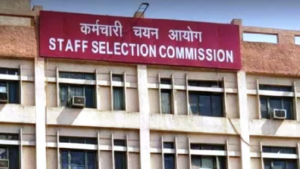
Education is the foundation for a child’s future. However, in rural areas of India, many children are deprived of this fundamental right. The dedicated work of non-governmental organizations (NGOs) is significantly impacting child education, providing hope and opportunities for a brighter tomorrow. Let’s find out how they help.
Addressing Barriers to Education
One primary way an NGO for children is making a difference is by addressing barriers such as distance to schools, limited teacher availability, and the absence of learning materials. Setting up mobile classrooms or temporary learning centers ensures that children in the most remote areas have a place to learn. These initiatives are often complemented by providing school supplies, uniforms, and learning materials, reducing the financial burden on families.
Promoting Equal Opportunities for Girls
Girls in rural areas face an even more brutal battle when it comes to education. Cultural expectations, early marriages, and household responsibilities often prematurely pull them out of school. NGOs play a vital role in promoting gender equality in education. They advocate for girls to stay in school and work with communities to shift perceptions around the value of educating girls.
Programs that provide scholarships, mentorships, and after-school support have allowed young girls to continue their education and pursue their dreams. This empowerment improves their future prospects and inspires other families to prioritize education for their daughters.
Teacher Training and Development
Quality education doesn’t just depend on the availability of schools. It also relies heavily on the skills and dedication of teachers. Many rural areas struggle with poorly trained or unmotivated teachers.
NGOs have stepped in to offer teacher training programs that enhance the skills and knowledge of educators in these regions. These programs are tailored to the specific needs of rural schools, focusing on everything from basic teaching methods to integrating digital tools where possible.
The result is a more engaged and effective teaching force capable of inspiring students and improving these communities’ overall quality of education. Trained teachers are better equipped to handle large class sizes, understand diverse learning needs, and motivate students to stay in school.
Nutrition and Health Support in Schools
One of the more subtle ways NGOs improve child education is through health and nutrition programs. In many rural areas, malnutrition and poor health are significant barriers to learning. Children who are hungry or sick cannot focus on their studies. Recognizing this, NGOs have introduced school meal programs and health check-ups as part of their educational initiatives.
These programs ensure that students have the energy and focus they need to learn by providing regular, nutritious meals. Furthermore, regular health screenings catch issues early, ensuring that children remain healthy and can continue attending school without interruption.
Encouraging Community Involvement
One of the most remarkable aspects of NGO for children is how it involves the entire community. Education is not just about the child; it’s about changing the community’s mindset toward the importance of learning. Many actively engage with parents, local leaders, and government authorities to advocate for education reforms and policies that benefit children in rural areas.
Workshops, community meetings, and awareness campaigns help build a sense of collective responsibility toward education. Parents are encouraged to keep their children in school, while community leaders are often enlisted as advocates for educational initiatives. This grassroots involvement ensures that the entire community understands and embraces the benefits of education.
The impact of NGOs on child education in rural areas is profound. Their efforts are not just about providing access to education but about ensuring that this education is meaningful and transformative for both the children and their communities. The benefits ripple far beyond the classroom, creating lasting change for generations to come.







